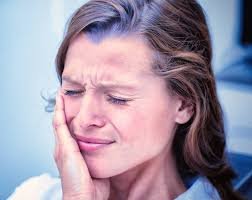Feeling pain in your upper gum of the mouth can be uncomfortable and worrying. Several things could cause this pain, ranging from simple irritation to more serious dental issues. Here’s a breakdown of some common causes and easy remedies to help soothe the discomfort.
1. Gum Infections (Gingivitis or Periodontitis)
One of the most common causes of gum pain is an infection like gingivitis, which is the early stage of gum disease. This happens when plaque builds up on the teeth, leading to swelling, redness, and pain in the gums. If not treated, it can worsen into periodontitis, a more serious infection that can damage the bone supporting the teeth.
Remedy:
- Brush and floss regularly to remove plaque.
- Rinse with an antibacterial mouthwash.
- See a dentist for a deep cleaning or treatment if the infection is severe.
2. Gum Injury
Sometimes, an injury to the gum can cause pain. This could be from accidentally biting your gum, eating hard or sharp foods (like chips), or using a toothbrush with hard bristles that irritate the gums.
Remedy:
- Switch to a soft-bristled toothbrush.
- Avoid eating hard or crunchy foods for a few days.
- Rinse your mouth with warm salt water to soothe the area.
3. Tooth Infection (Abscess)
A tooth abscess is a painful infection that affects the root of a tooth or the area between the tooth and gum. It can cause intense gum pain, swelling, and sometimes even fever. Abscesses often occur when cavities or other damage allow bacteria to infect the tooth’s pulp.
Remedy:
- See a dentist immediately. Tooth abscesses require professional treatment.
- In the meantime, rinse your mouth with warm salt water to help reduce pain and swelling.
- Take over-the-counter pain relievers, but don’t delay getting dental care.
4. Canker Sores
Canker sores are small, painful ulcers that can appear on the gums. They are usually white or yellow with a red border. Canker sores can develop due to stress, minor injuries in the mouth, or certain acidic foods.
Remedy:
- Avoid spicy or acidic foods until the sore heals.
- Use over-the-counter gels or creams that numb the area.
- Rinse with a saltwater solution or a mild mouthwash.
5. Sinus Infection
Sometimes, a sinus infection can cause pain in the upper gums. This happens because the sinuses are located above the upper teeth, and when they become inflamed, they can put pressure on the gums and teeth.
Remedy:
- Treat the sinus infection with decongestants or antibiotics if prescribed.
- Use a saline nasal spray to help clear the sinuses.
- Drink plenty of fluids and get rest to allow the infection to clear.
6. Teeth Grinding (Bruxism)
If you grind your teeth at night or during the day, it can cause soreness in the gums and jaw. Grinding can put pressure on the teeth and gums, leading to pain.
Remedy:
- Wear a mouthguard at night to protect your teeth.
- Try to reduce stress, as it can make teeth grinding worse.
- See a dentist if the grinding is severe, as they may suggest specific treatments.
When to See a Dentist
If the pain in your upper gum persists for more than a few days or gets worse, it’s important to see a dentist. They can diagnose the issue and provide the right treatment to help relieve your pain. Infections and abscesses, especially, need prompt care to prevent more serious complications.
Conclusion
Gum pain can result from a variety of causes, from minor injuries to infections. Simple home remedies like brushing, flossing, and rinsing with salt water can often help, but more serious issues may require a dentist’s intervention. If you’re unsure about the cause or if the pain doesn’t go away, don’t hesitate to seek professional advice.


